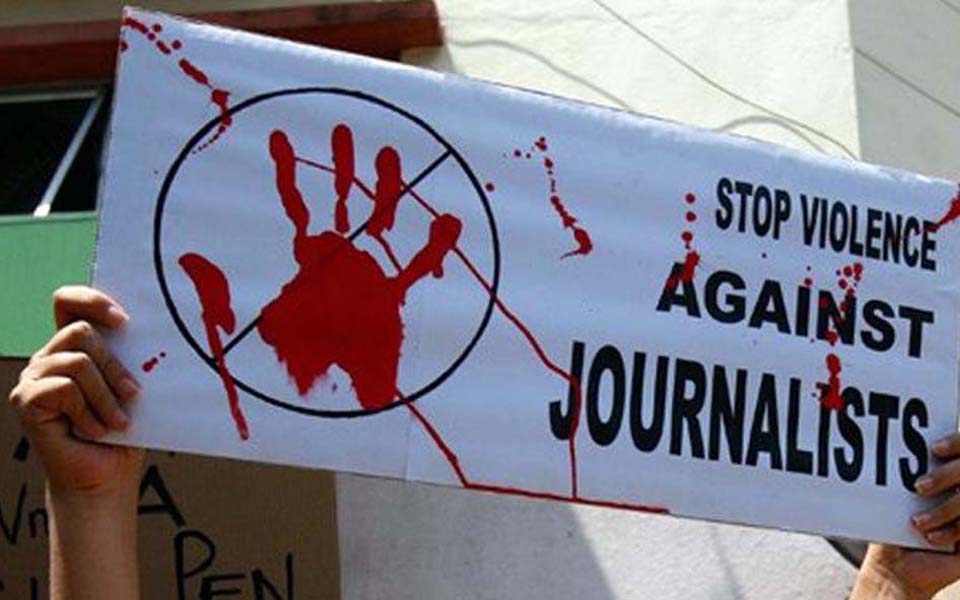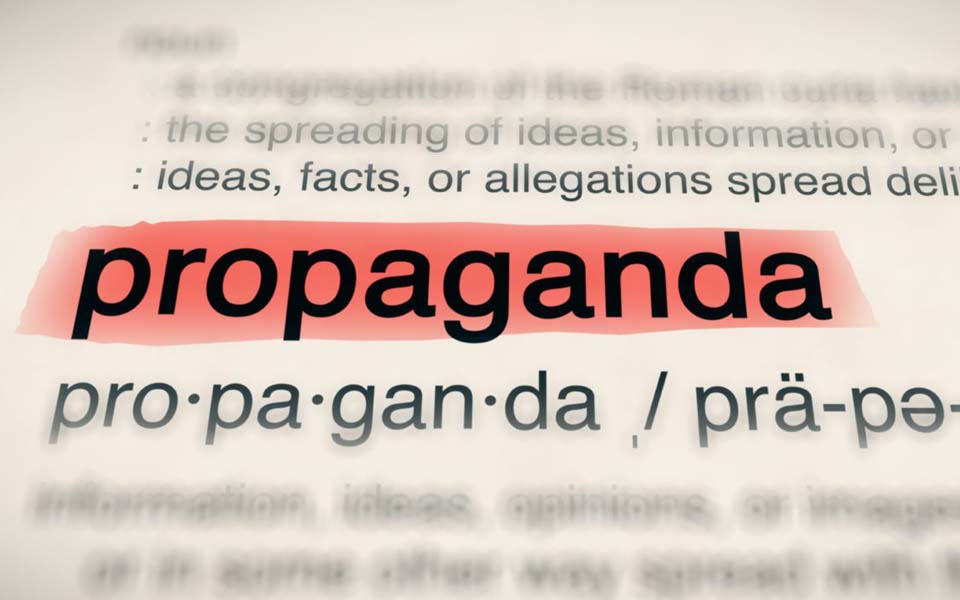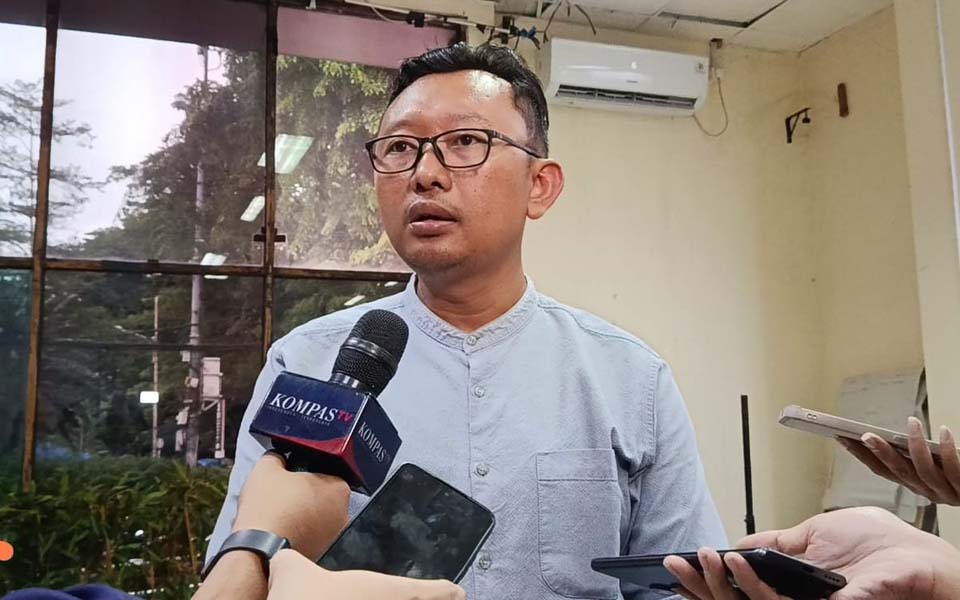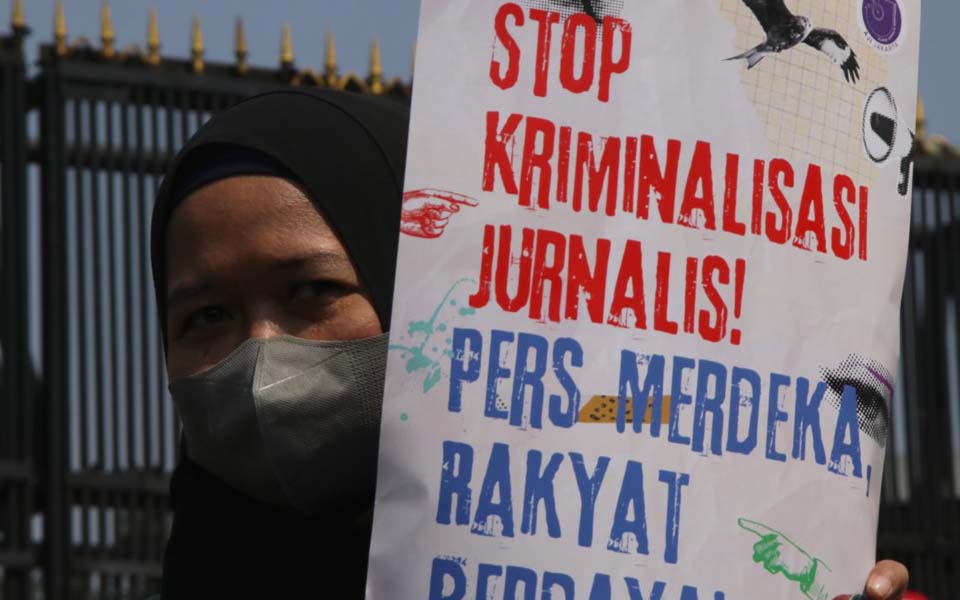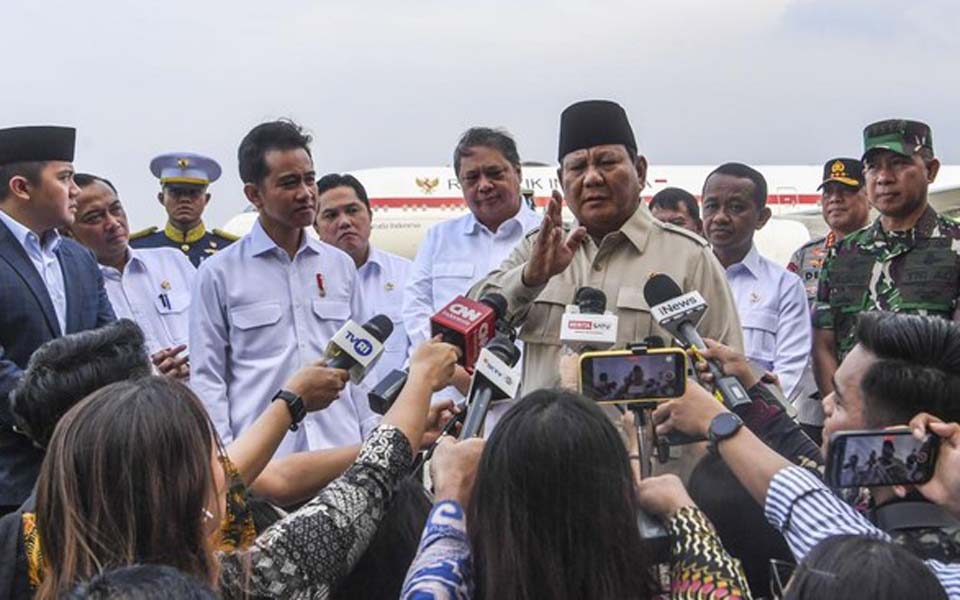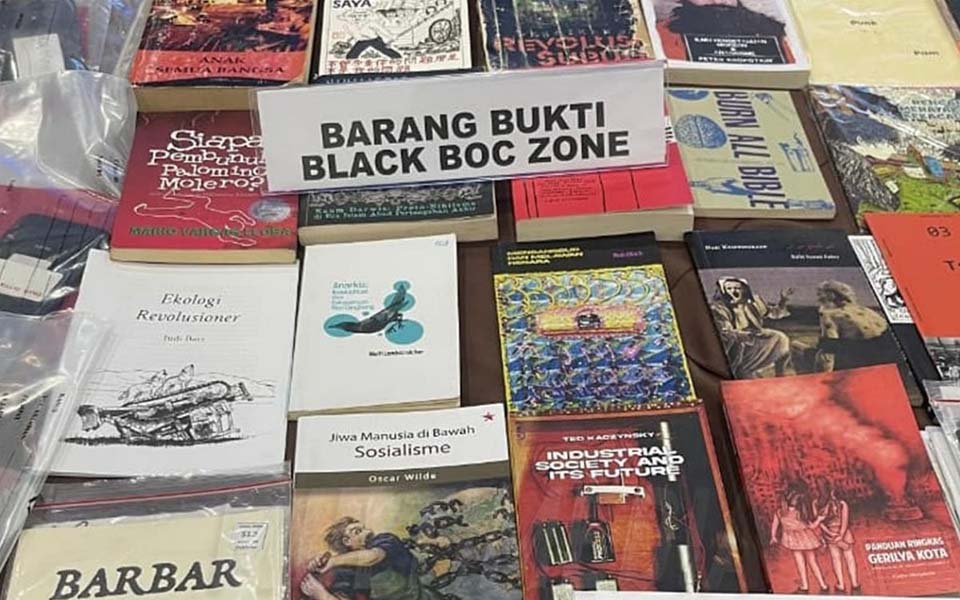Jakarta – Earlier this month on May 3, mass media workers throughout the world commemorated World Press Freedom Day. Three Indonesian journalist organisations however, in a joint statement last week, said that press freedom in Indonesia is to this day still under threat.
The Alliance of Independent Journalists (AJI), the Indonesian Journalists Association (PWI) and the Association of Indonesian Television Journalists (IJTI) collectively rejected lawsuits against and the criminalisation of the press. There is also a tendency for the law to be misused to coerce the press. Meaning, this threatens press freedom.
The joint statement by AJI, PWI and IJTI was not just related to a civil lawsuit by Raymond Teddy H, a suspect in a gambling case, against seven media organisations, namely Kompas newspaper and Kompas.com, the private television station RCTI, the newspapers Warta Kota, Seputar Indonesia, Suara Pembaruan and, Republika and the Detik.com news portal, but also against the treats of violence that still befalls press workers and businesses. The civil lawsuit is still being heard at four district courts in Jakarta, with the exception of the South Jakarta District Court that has already reached a verdict.
The three organisations noted that on May 7, 2010, a contributor with the private television station SCTV in Ambon, Maluku, Juhry Samanery, was allegedly assaulted by Ambon District Court officials when he was covering a story. Samanery, ironically, was declared a suspect by the Ambon district police after being reported for striking an Ambon District Court official.
The concerns of the three journalist organisations appear to be valid. Although not noted by AJI, PWI and IJTI, three days after the commemoration of World Press Freedom Day, members of a certain youth organisation in East Kalimantan (Kaltim) vandalised the offices of Balikpapan TV and assaulted a Kaltim Post newspaper journalist. The two media companies share the same office. The youth group also visited the Tribun Kaltim newspaper office.
In Jakarta on April 28, 2010, the commander of a security platoon in the East Jakarta mayor’s office, Apriyadi, was reported for head-butting Sun TV journalist Rio Manik. East Jakarta PWI coordinator Nur Alim was also dragged in and threatened with death by an East Jakarta security guard when he was covering a protest action in the area. Apriyadi, the perpetrator, was only received a written reprimand (Kompas, 30/4).
Two months earlier, on March 9, Metro TV journalist Deni Mozes was assaulted by a group of youths in Jembatan Organda, Abepura, Jayapura, Papua. The reasons for the assault on Mozes are unclear (Kompas, 11/3).
A media consultant from Britain, Tessa Paper, in a report titled Don’t Shoot the Bearer of News (2009) notes that the number of case of violence against Indonesian journalists between 1996 and 2009 has fluctuated greatly. The largest number of case were recorded in 2000, as many as 122. The smallest number of cases was in 1996, with only 13 cases recorded.
Of the cases of violence resulting in the death of journalists, the most infamous was the case of AA Narendra Prabangsa (41) from Radar Bali. Prabangsa was found dead floating in Bungsul Bay, Padang Bai, Karangasem regency, Bali, on February 16, 2009. In the court hearing of the accused it was revealed that Prabangsa’s murder was related to a news report.
The Prabangsa case is like a repeat of the tragic story of Bernas (Yogyakarta, Central Java) journalist Fuad Muhammad Safrudin (Udin). In 1996, Udin was assaulted resulting in his death because of a news report.
Aside from opposing the manipulation of the law to threaten press freedom, almost every year AJI, PWI and IJTI calls for press freedom to be respected. The press has to obey and respect the law, but reporting by the media must be based on fact and the truth and abide by the code of ethnics which is also protected by Law Number 40/1999 on the Press.
The press law states that press freedom is a citizen’s right. Those who object to a mass media report can submit a right of reply. If they are still not satisfied, they can ask the Press Council to mediate.
This is what was done by the national police when it objected to a TV One report. The police even named a suspect in the case. Mediation by the Press Council on May 27 however resulted in an out of court settlement for both parties.
Not easy
Speaking in Jakarta on Sunday, Press Council Chairperson Bagir Manan conceded that it is not easy to pursuade and at the same time convince society to resolve problems through the press law when a party experiences problems as a result of mass media reporting. This however is what should continue to be endeavored.
Not only that, but the mass media and journalists, said Manan, must continue to improve themselves, particularly in relation to the quality of their reporting and consistently adhere to the principle of reporting in accordance with the journalist code of ethics and the press law. He welcomes all attempts to resolve disputes over news reports through the Press Council.
“Of course we cannot prevent people from pursuing legal avenues when they feel their name has been tarnished or feel that the press has done something unpleasant through a news report”, he said. However by using the code of ethic as a criterion, Manan is positive that the chances of errors in news reports will become smaller. In addition to this, the mass media and journalists must also properly understand various legal regulations, particularly those that can be used to indict the press.
“However, if correctly studied, such as Article 310 of the Criminal Code on defamation, it turns out that it must first be proved whether or not there was an element of intent. Likewise also with the articles on unpleasant conduct, it must still be proven that there was an element of intent,” said Manan.
By properly understanding the articles that have the potential to indict journalists and the mass media in this way, added Manan, the press has a good means of defense. He still suggests however that society be disposed to going to the Press Council to resolve any and all disputes that occur.
Supreme Court Chief Justice Harifin A. Tumpa has already issued Circular Number 13/2009 appealing for the need to hear testimony from the Press Council as an expert witness in all press cases and disputes.
University of Indonesia criminal law expert Indriyanto Seno Adji adds that in order to avoid the criminalisation of the press, criminal sanctions should be removed from the press law. This is important so to avoided dualism in law enforcement.
According to Adji, it is time to develop restorative justice. Meaning, not all legal problems have to be resolved to the courts. (DWA/ANA/TRA)
[Translated by James Balowski.]





